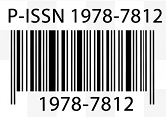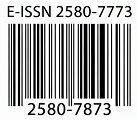RESPON MUSLIM INDONESIA TERHADAP GERAKAN ISLAMISME DI TIMUR TENGAH: KASUS HAMAS DAN KONFLIK PALESTINA
Abstract
This paper will examine how the Indonesian Muslim community which consist many streams of religious and social organizations to respond the crisis that involved recently in the Gaza Strip involving Hamas Islamism group. The main issue highlighted in this paper is whether Hamas has network in Indonesia? How the influence of Hamas network in Indonesia towards the development of Islamic fundamentalist thought in Indonesia? Is the Muslim community in Indonesia has the same view in addressing the conflict in the Gaza Strip?This article will use two approaches; the theological and political approach. Theological approach is used to see similarity of the doctrine espoused byHamas with some Islamists in Indonesia. Moreover, this approach is also used to distinguish between Hamas ideological doctrine with the view of other Islamist groups grown today. While political approaches used to answer the question how the political support of the Indonesian people against the Israeli Palestinian conflict, in particular the conflict between Hamas and Israel. Based on review of the above problems, it can be found that from an ideological perspective, Hamas has a strong network in various countries, including Indonesia. Whereas the model of Indonesian Muslims support to the Gaza crisis, at least occurs in three forms: pan-Islamism, diplomatic support and humanitarian support
References
Ali Abunimeh, ‚Hamas and the Two State Solution: Villain,
Victim, or Missing Ingredient, ‚Middle East Policy, Vol.
XV, No. 3, (2008).
Sherifa Zuhur, ‚Hamas and Israel: conficting Strategies of GroupBased Politic‛,dalam Nejc Kardelj (ed.), Israel Versus
Hamasi (New York: Nova Science Publishers, 2010).Mulawarman, Respon Muslim Indonesia terhadap Gerakan Islamisme |
Michael Irving Jensen, The Political Ideology of Hamas: A
Grassroots Perspective (New York: I.B. Tauris, 2009).
Kuel Jok, ‚Conflict of National Identity in Sudan‛ Academic
Dissertation, University of Helsinki, (2012).
Osama Abu Rashid dan Paul Syam, ‚Hamas: Tashaddud ‘Aqa’idiwa
Murunah Siyaasiyyah‛, Silsilah Tarjamat al-Zaitunah 47,
(Januari 2010).
Robert Satloff, ‚Origins, Tactics, Strategy, and Response‛ dalam
Hamas Triumphant, Implication for Security, Politics,
Economy, and Strategy, The Washington Institute for Near
East Policy (2006).
Abu Nimr tentang studi perdamaian bisa dilihat dalam Muhammad
Abu Nimer, Nonviolence and Peacebuilding in islam
(Florida: University Press of Florida, 2003).
Mahmud Zihar, Ishkaliyyah al-Khitab al-Siyasi al-Islami al-Mu’asir
(Beirut: Dar al-Mustaqbal, tt.).
Ashraf al-‘Ajrami, ‚al-Mar’ah wa al-Intikhabat‛ Majallah Tasamuh,
Edisi 5, (2004).
Ali Abunimeh, ‚Hamas and The Two State Solution:Villain,
Victim, or Missing Ingredient,‛ Middle East Policy, Vol.
XV, No. 3, Summer 2008.
Jim Zanotti (ed.), ‚Israel and Hamas: Conflict in Gaza (2008-2009)‛
Congressional Research Service, (Februari 2009).
Aaron D. Pina, ‚Fatah and Hamas: the New Palestinian Factional
Reality‛, CSR Report for Congress (Maret 2006), 2.
Khalid al-Hindi, ‘Amaliyyah al-Bina al-Watani al-Filistini, Wijhah
Nazrin Islamiyyah (Nablus: Markaz al-Buhuth wa al-Dirasat
al-Filistiniyyah, 1999).180 |Rausyan Fikr, Vol. 12 No.2 Desember 2016: 161 - 180
Jamal Mansur, al-Tahawwul al-Dimuqrati al-Filistini Wijhah Nazr
Islamiyyah (Nablus: Markaz al-Buhuth wa al-Dirasat alFilistiniyyah, 1999).
Mahmud al-Zihar, al-Qawasim al-Mushtarakah wa Wihdat al-Hadf
fi al-Sultah wa al-Mu’aridah (Ramallah: Manshurat Wizarah
al-I’lam, 1995).Boris Dewiel, Democracy; A History of
Ideas (Canada: University of British Columbia Press).
David Potter, David Goldblatt, Margaret Kiloh, Paul Lewis,
Democratization(USA: Polity Press in Assosiation with the
Open University, 2000).
John L. Esposito & John O. Voll, Islam and Democracy (New York:
Oxford University Press, 1996).
Komaruddin Hidayat dan Ahmad Gaus AF (ed.). Islam Negara dan
Civil Socierty (Jakarta: Paramadina, 2005), 279.
Majid Khadduri, Arab Contemporaries, the Role of Personalities in
Politics (Baltimore and London: The Johns Hopkins
University Press).
Muhammad Patri Arifin, “Rekonsiliasi dalam Al-Quran”, Rausyan Fikr: Jurnal Studi Ilmu Ushuluddin dan Filsafat, Vol. 11 No. 1, 2015, 115 – 138.
Hakan Yilmaz , ‚Islam, Sovereignty, and Democracy: A Turkish
View‛, Middle East Journal, Vol. 61, No. 3 (Summer, 2007).
David Held, Models for Democracy (London: Blackwell Publisher,
, 294.
Sami Zubaida, Islam the People and the State: Polical Ideas and
Movements in the Middle East (London: I.B. Tauris, 2009).
Abu al-A’la al-Maududi, The Polical Theory of Islam (Pathankot:
Maktab al-Jama’at al-Islami,tt).
Youssef M. Choueriri, Islamic Fundamentalism (London, 1990).
Ayatullah Khumaini, ‚An Islamic State: Point of View‛ dalam
Salim Azzam, (ed.), Concept of Islamic State (Kuala Lumpur:
ABIM



_(1)1.png)















